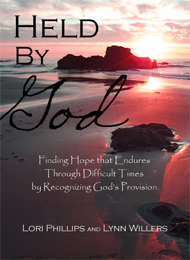 We humans love to get our own way. Ever since Adam and Eve decided that their plan was better than God’s plan, it has been our nature to pursue our own desires first. From early childhood, we begin to exert our own will, and learn how to manipulate others into conforming to it.
We humans love to get our own way. Ever since Adam and Eve decided that their plan was better than God’s plan, it has been our nature to pursue our own desires first. From early childhood, we begin to exert our own will, and learn how to manipulate others into conforming to it.
When my niece was about four years old, she and my sister stayed with me for the weekend. On the morning they were to return home, my sister packed their belongings while Katie sat on the family room floor watching television. I had given her a breakfast tray, some paper and a collection of colored pencils, and she had great fun using them to create her masterpieces. As the last of the toys, clothes, barrettes and errant socks were found and returned to the suitcase, Lori told Katie to gather her drawings together, and return the pencils to Lynnie. Katie replied that she wanted to take the pencils home with her. When I told her that she had to leave them here, Katie paused and then slowly handed over all but three of the pencils, stating, “what if I just take these?” Apparently to her, “no” might mean “maybe” if she could successfully negotiate a deal! It surprised me to see that drive we have to get our own way, so obvious in one so young.
Part of the Christian life is the battle between God’s will and our will. We struggle to obey, when what we want conflicts with what God wants for us. This is especially true when his plans don’t resemble ours in any way.
“For I know the plans I have for you,” declares the LORD, “plans to prosper you and not to harm you, plans to give you hope and a future.” Jeremiah 29:11, NIV
This verse implies that part of the good plan for us may include some things that we’ll perceive as bad, since God has to point out that his goal is not to harm us.
Many of us enter adulthood with our lives carefully planned out—and then it all goes sideways. What happens when life falls apart and we find ourselves in circumstances we never thought would happen—a life-changing illness, dissolution of a marriage, or the death of a loved one? How do we make peace with the fact that God’s plan may include him allowing events into our lives that cause us pain?
We cry out to God, asking him how this could happen. Confused and hurt, we cannot fathom how our suffering can be God’s will. This part is especially hard for us to understand. When life doesn’t work out as we planned, our will is forced to bend to his will, like it or not. We cannot change the circumstances he allows, but we do have control over how we react to them. It is within our ability to choose to trust that his plan is good, even when we cannot perceive the good right now. James tells us that we are to count it all joy when we suffer.
Consider it pure joy, my brothers and sisters, whenever you face trials of many kinds, because you know that the testing of your faith produces perseverance. Let perseverance finish its work so that you may be mature and complete, not lacking anything. James 1:2-4, NIV
The best example of this is Jesus himself, who went to the cross willingly on our behalf, knowing exactly what it would cost him.
He withdrew about a stone’s throw beyond them, knelt down and prayed, “Father, if you are willing, take this cup from me; yet not my will, but yours be done.” Luke 22:41-42, NIV
Jesus surrendered his own will to the will of the Father, because the cross was part of God’s plan.
For the joy set before him he endured the cross, scorning its shame, and sat down at the right hand of the throne of God. Consider him who endured such opposition from sinners, so that you will not grow weary and lose heart. Hebrews 12:2b-3, NIV
The example Jesus left for us demonstrates that our suffering is never in vain. God’s plans and thoughts are not for us to fully understand, but we can know about his character. His Word shows that his love for us is vast and his plans for us are good. Ultimately we are left to trust his heart and surrender our will to his.
There is a beautiful ballad by Hillary Scott, which articulates the process of surrendering our will to God, and trusting in his heart when life is difficult.
When our broken heart is part of God’s plan, we can only rely on what we know of his character. Then despite the pain, we can accept that his will is always best for us.
On the journey toward Home,











